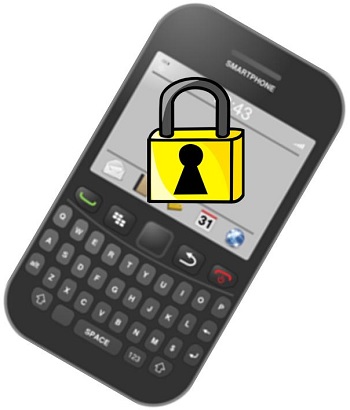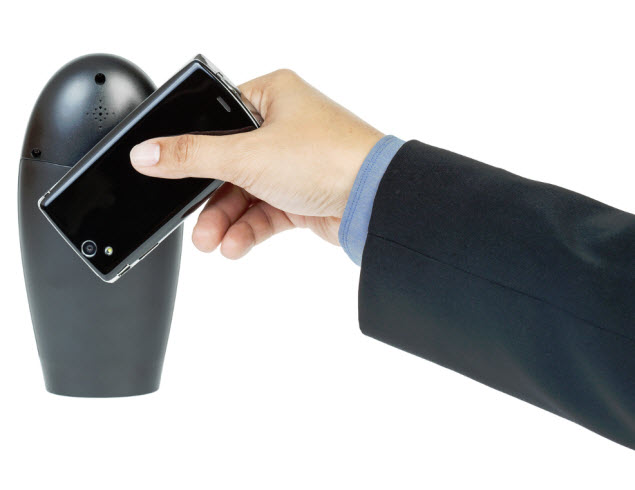The company has used this opportunity to flaunt its strong reputation for keeping data and files safe.
BlackBerry Ltd. has taken the opportunity presented by the nude celebrity photo hacking controversy to remind people about the outstanding reputation that the company has in terms of mobile security.
As concerns have risen following the theft of highly personal celeb photos from the iCloud, Blackberry saw its chance.
The Canadian handset maker used its own official blog in order to pump its mobile security and to make recommendations for users to follow so that they can help to protect themselves against similar risks. The company used its most recent post to point out a range of different reports that have supported its claims for providing high quality security. These reports came from companies that included everyone from CNN and Time Warner Cable to CNBC and Fox News.
The blog post from BlackBerry provided steps for device users to take to boost their mobile security.
 They explained that “As the iCloud hacking story continues to unfold, experts are finding it hard to talk about strong mobile security without bringing the corporate embodiment of it into the discussion.” A previous post provided readers with “five concrete steps for better mobile security.”
They explained that “As the iCloud hacking story continues to unfold, experts are finding it hard to talk about strong mobile security without bringing the corporate embodiment of it into the discussion.” A previous post provided readers with “five concrete steps for better mobile security.”
At the same time that this company was using the photo hacking scandal as a chance to place itself in a positive light, Apple has been working hard on damage control. Recently Tim Cook revealed that the company already had plans to implement a new security system that will add an additional layer of protection as it will provide users with a notification if any attempts have been made to change their account passwords or to download data to a new device from the iCloud.
Apple has also taken this time to point out that the hackers were able to obtain access to the content because they either guessed the mobile security question to reset the password or they sent phishing emails to which the celebrities fell victim and revealed their login details. The company has stated that this was not a case of the iCloud being compromised.
Apple could finally embrace NFC technology in the near future
Investment firm Morgan Stanley believes that Apple will finally embrace NFC technology through a platform called “iWallet.” This is not the first such prediction to be made concerning Apple and NFC, but past forecasts regarding the pairing have failed to live up to reality. Apple has avoided NFC largely because of its concerns regarding the technology’s security and capabilities, but this avoidance mostly involved Apple’s use of NFC in mobile payments.
NFC has come under fire in recent years due to technical problems and security issues
NFC currently forms the backbone of most mobile payments services throughout the world. The technology allows for digital information to be transmitted over short distances, making an ideal commerce tool. The technology does, however, have some security issues that have been exposed through high profile attacks on mobile services that make use of NFC. These security issues have made many consumers leery of mobile payments and has even lead some large companies, such as Google, to remove NFC support from some of their leading mobile initiatives.
Apple may be growing fonder of NFC technology
 Apple’s wireless endeavors have largely focused on iBeacon, which debuted last year and represents a sort of combination of Wi-Fi and Bluetooth technology. Morgan Stanley predicts, however, that Apple is growing more confident in the abilities of NFC and the company could include the technology in future devices. As NFC sees more use, it is becoming more advanced and secure, making it more attractive to companies that have opted to take a cautious approach to the mobile payments space.
Apple’s wireless endeavors have largely focused on iBeacon, which debuted last year and represents a sort of combination of Wi-Fi and Bluetooth technology. Morgan Stanley predicts, however, that Apple is growing more confident in the abilities of NFC and the company could include the technology in future devices. As NFC sees more use, it is becoming more advanced and secure, making it more attractive to companies that have opted to take a cautious approach to the mobile payments space.
Apple would focus on security if it does choose to integrate NFC into future mobile devices
If Apple does embrace NFC technology, Morgan Stanley predicts that the company will focus on security. The company may choose to incorporate an NFC chip into future devices that works alongside a secure element that will store consumer financial information. The NFC chip would transmit this information when a payment is authorized by the device’s owner, using a fingerprint or other biometric information to authenticate the owner.
 They explained that “As the iCloud hacking story continues to unfold, experts are finding it hard to talk about strong mobile security without bringing the corporate embodiment of it into the discussion.” A previous post provided readers with “five concrete steps for better mobile security.”
They explained that “As the iCloud hacking story continues to unfold, experts are finding it hard to talk about strong mobile security without bringing the corporate embodiment of it into the discussion.” A previous post provided readers with “five concrete steps for better mobile security.”
 Apple’s wireless endeavors have largely focused on iBeacon, which debuted last year and represents a sort of combination of Wi-Fi and Bluetooth technology. Morgan Stanley predicts, however, that Apple is growing more confident in the abilities of NFC and the company could include the technology in future devices. As NFC sees more use, it is becoming more advanced and secure, making it more attractive to companies that have opted to take a cautious approach to the mobile payments space.
Apple’s wireless endeavors have largely focused on iBeacon, which debuted last year and represents a sort of combination of Wi-Fi and Bluetooth technology. Morgan Stanley predicts, however, that Apple is growing more confident in the abilities of NFC and the company could include the technology in future devices. As NFC sees more use, it is becoming more advanced and secure, making it more attractive to companies that have opted to take a cautious approach to the mobile payments space.